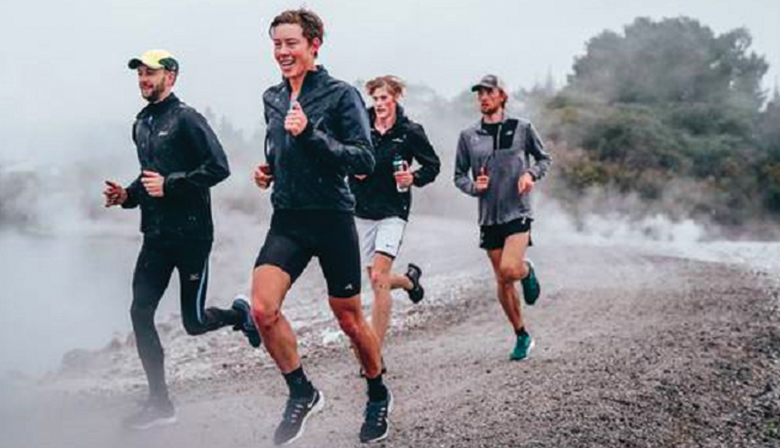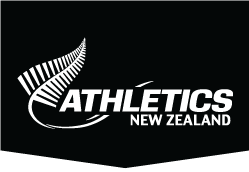News & Updates
Rocking in Rotorua

Earlier this month (July) the city of Rotorua played host to a two-week endurance training base for New Zealand’s leading male athletes. Steve Landells chats to Athletics NZ distance coach Steve Willis and a couple of the attendees to find out more.
Covid-19 has unquestionably presented its challenges but for Athletics NZ distance coach Steve Willis he insists it has also served up its opportunities
With a significant contingent of Kiwi NCAA athletes currently back in their homeland and the Robertson twins – Zane and Jake – back from their African base, Steve was quick to seize upon the positives of having a large group of the country’s finest endurance talent together in New Zealand at the same time.
So in an effort to unite the athletes and to help raise standards he helped organise the two-week training base in Rotorua.
“With no significant competition looming and with everyone at a similar stage of their training, it was a great opportunity to get our emerging talent to train together with our more established guys to help accelerate their learning.
“Rotorua has a long history of being a hotspot for distance running with the Redwood forest (Whakarewarewa Forest) a great training option. The forest is well protected from the wind and the trails drain really well, so offers a great surface to run on, even in winter. Besides the Redwoods we also have the option of training on the Sulphur Fields and also the Tarawera Trail Run.”
In total 17 athletes attended either a portion or all of the two-week gathering, which was deliberately worded as a ‘training base’ rather than ‘training camp’.
Wednesday and Saturday were set up as more ‘intense’ training days with Sunday as the longer run, although athletes had the freedom to pick and choose their specific training plan as required.
Among those who attending included New Zealand 10,000m record-holder Jake Robertson, Sam Tanner, the teenage 2019 national 1500m champion and 2020 New Zealand 5000m champion Hayden Wilde as well as emerging talents such as Liam Lamb and Liam Back and gifted secondary school athletes James Harding and Zane Powell. Several coaches also attended.
With the athletes sharing three Airbnb houses close to Whakarewarewa Forest – Steve stressed the theme of the endurance base, which was hosted by Lake City AC, was “quality preparation.”
“It was not so much about preparing for competition but preparing as an athlete, not only in terms of training but the wider aspect of being an athlete,” he says.
“We did some work, for example, on performance health with HPSNZ physiotherapist Tim Dovbysh, which was focused not so much on treatment as much as identifying areas to work on in order to maintain full health.”
Steve says HPSNZ physiologist Mat Mildenhall was also present for three days in Rotorua to talk through the data findings from physiological testing completed by many of the athletes back at their individual training bases.
“This was really beneficial because it allowed the athletes to take this info back to their local providers and put together a more solid plan around the information,” adds Steve. “As we continue to build up our data profiles we are in a much better position to support our leading athletes.”
New Zealand men’s U20 3000m champion Liam Lamb attended the full two weeks of the training base and found the experience enormously beneficial.
In March, the 19-year-old Wairarapa athlete suffered a stress fracture to the second metatarsal of his left foot and faced two months away from running. However, despite a relative lack of fitness he leapt at the chance to train in Rotorua.
“It was just a huge opportunity for me to connect with and meet people who I’m going to be racing against,” explains Liam. “I have not been back running long (since the injury) but to be around elite runners and train with them is a big confidence boost. Training in a group environment helps quickly improve my fitness and also motivate me.”
He recalls a 4 x one mile training session he completed, in which he covered the first 5km in a time of 15:40 on the Sulphur Trials, as one such confidence boost.
“I know I had one minutes rest between each set but it was almost a 5km PB for me and it felt really easy,” he says of the session.
For 3:57 miler Eric Speakman, who at the age of 29 is ten years Liam’s senior, the training base also proved hugely rewarding.
In 2019 Eric suffered three separate stress fractures but he returned to competition earlier this year to win national 1500m senior bronze and believes the week he spent in Rotorua was a great opportunity to further his knowledge base.
“We spend a lot of time apart from each other with our various individual coaches, but if you are open-minded about being a part of this environment you can learn a lot from other athletes, which you can then implement into your own training programme.
“I know from personal experience when I’ve been in a similar (high performance) environment it is hugely beneficial. Back in 2016 when I trained for a period with Nick (Willis), Julian (Matthews) and Hamish (Carson). All three qualified for the Olympic Games that year and it resulted in me running a five-second 1500m PB (for 1500m). Being in such an environment makes it so much easier to do the right thing and make the right decisions.”
For Liam listening and being around the elder statesmen of New Zealand endurance running, such as Jake and Eric proved invaluable. Hanging out with Jake, a 2:08 marathon runner, emphasised the importance of consistent training and focusing on the key training sessions as being the basis for future success.
And with moves to potentially set up another Athletics NZ training base in Snow Farm on the South Island later this year it is opportunity the Massey University Sports Management student, would grab with both hands.
“I’d definitely train as part of the base again should it happen again,” adds Liam. “It would be a great way to get some good quality training ahead of the Night of Fives event in December.”
Reflecting on the two-week training base, Steve also found the experience hugely positive.
“The biggest benefit was bringing our best athletes together and facilitating a high performance training environment, which gave them the chance to train together and learn from each other. For the younger athletes in particular, it gave them a sense of what the top athletes do to perform. With so much uncertainty around what the NCAA can offer at the moment – in terms of the number of scholarships which can be offered or whether even the same level of competition can take place we thought this was a great opportunity to demonstrate the sort of individualised support available here in New Zealand, which NCAA athletes don’t often get.”
LATEST NEWS
- Kerr all set to soar at the innovative What Gravity Challenge
- Weekly Round Up: 7 May
- Nagel at the double and Speakman breaks national hoodoo
- Voss reigns in 60th anniversary Red Stag Rotorua Marathon
- Nagel secures national road mile title with record-breaking display
- Twelve named in initial NZ World Athletics U20 Championships team
- Red Stag Rotorua Marathon set to toast special anniversary
